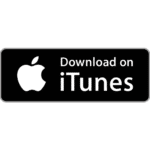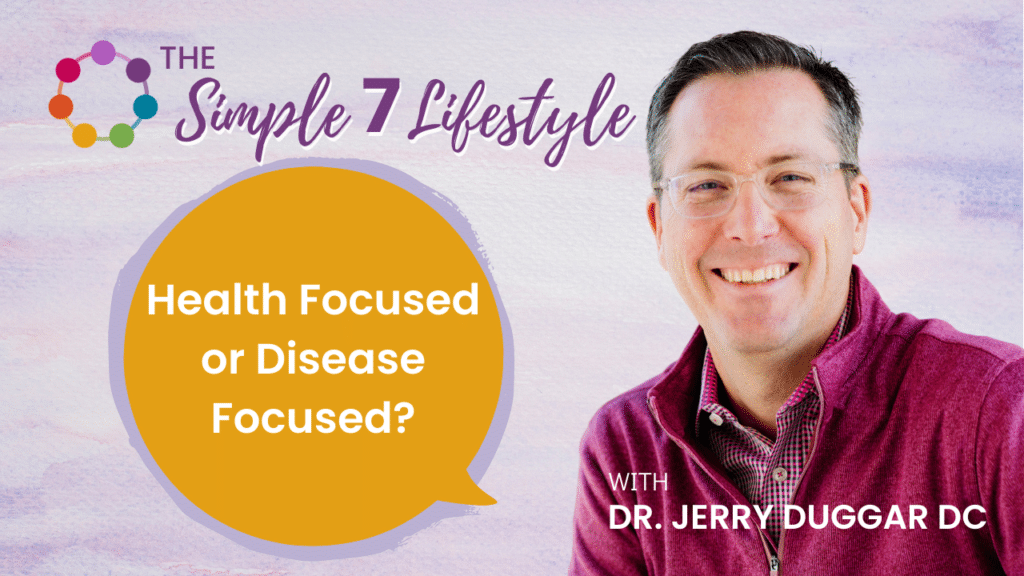Listen on iTunes

Episode Transcript
Hey Friends,
For over 2 decades now, I’ve spent my days working in the trenches, sitting knee-to-knee with thousands of people who are trying to improve their health. People just like you who were frustrated, depressed, demoralized, and ready to give up trying to look and feel better. Due to the fact that I’m not a medical physician, the stories I hear are of the people who have been bounced around inside of the traditional allopathic medical/pharmaceutical/insurance complex and who are looking for answers that the “system” wasn’t able to provide.
And for the record, that “system” is not working for the majority of people. America now ranks 37th in overall health and 38th in life expectancy. Over 130,000,000 people suffer from chronic diseases that science reveals are 78% preventable. The number of people diagnosed with chronic diseases has quadrupled in the last 40 years. 65% of Americans are overweight or obese, and obesity alone is related to over 300,000 deaths each year.
The price tag to manage this skyrocketing problem of chronic disease is estimated at more than 2.7 trillion dollars. If the trends continue, economists expect that by 2082, it will take the entire Gross Domestic Product to pay for this growing crisis.
The current model of “health care” is mismatched with our needs, it is woefully incomplete in its arsenal and has too long been completely driven by pharmaceutical profits and administrative bureaucracy. It lacks the ability to even consider non-pharmaceutical interventions to promote health.
I’ve often said that one of the most insidious misnomers in the world today is calling today’s medicine, “health care” instead of the more apt term “disease management“. According to the World Health Organization, the definition of health is “the state of complete physical, mental and social wellbeing and not merely the absence of disease or infirmity.” Therefore caring for one’s health must go far beyond the “saving” of lives inside of a gargantuan, complex, and insanely expensive procedure-delivery system.
The truth is that many medical physicians know this fact. They are leaving the practice of medicine in large numbers as a result of the impact of “moral injury” from an inability to deliver the outcomes that they know they want to deliver.
Of course, the need for heroic medical intervention will never go away completely. There is no way to eliminate all trauma, accidents, and microscopic bugs that would create a need for invasive procedures. We know that chronic, preventable disease is responsible for 7 out of 10 deaths in America every year and accounts for over 75% of our national healthcare expenditures.
These chronic conditions won’t be solved by a “disease” focus but rather by a focus on the habits that sustain and create health.
How do we live more of our life within the framework of Health creation and far less time in the disease model?
True health care recognizes the continual process by which one nurtures a state of proper function and optimization of their body’s inborn healing potential. This is accomplished through appropriate lifestyle choices (movement, diet, breath, healthy relationships, play, sleep, and an optimistic framework on life.) that allow one to live a life that is rich, and happy more vital.
In the ideal state of health, you have an opportunity to live an abundant and inspired life.
A friend recently shared a great quote by the Chinese military general Sun Tzu. He said, “sweat more during peace; bleed less during war.” To apply that philosophy to this discussion today, it takes active intentional action to create and sustain health.
I find that people often lack the ability to see the distinction between health creation, disease prevention, early detection, and early disease treatment. A Pap smear, mammogram, and colonoscopy do not create health or prevent disease. There’s nothing “wellness” about them. They are early detection tests that might detect a problem once you are already in the middle of the pathological process. Nothing wrong with early detection. Far better than late of course, but let’s not pretend we’ve actually done something to create health by getting an annual physical or screening. What’s worse is that often detecting a problem in the medical system just means that they will recommend a drug or invasive procedure to you.
Unfortunately, patients receive treatments that won’t actually help and can even be dangerous at times.
A story we shared in our book describes a man seeking treatment for his coronary artery disease. Two doctors recommended he receive a coronary angiogram and a stent. Instead, he worked with a doctor to address his lifestyle, and within three months, “his cholesterol had improved markedly, he had lost 15 pounds, and the chest pain never returned.”[1]
I see this all of the time. Within the last month, I’ve had 2 patients whose cholesterol numbers dropped by nearly 100 points just by lifestyle changes and targeted supplementation. When that happens, we know that we are fixing all of the upstream processes by which the cholesterol was high in the first place. We’re not forcing it down to look good on a test.
So, just to be clear. I’m all for detecting things before they become life-threatening but then why don’t we apply treatments that address the cause of the problem instead of more dangerous therapies?
It can be challenging to really keep our mindset focused on health and not disease.
Here are a few questions to ask yourself about what model you are living in:
Q: Are you suppressing symptoms or supporting the normal function of your body?
A: With over 80 separate classes of over-the-counter medications and 20,000 drugs available by prescription, we have a pill for every ill. People believe that it is wrong to have any symptoms. That any discomfort or sniffle requires medication (or even a supplement) to make it go away. It’s like the body is constantly making mistakes that need to be fixed. Symptoms are seen as the problem as opposed to the body’s wise response to the problem.
Q: Do your actions reflect an attitude that your health is your doctor’s responsibility or yours?
A: I know that I have a skewed perspective within my practice because the very act of scheduling an appointment with me, they are more proactive in general. But the vast majority of the public is in denial that they have a problem, masking it until they can’t do it any longer, showing up to the doctor, and expecting it to go away. There is little personal responsibility.
Q: Does your approach often produce unwanted side effects or side benefits?
A: We’ve all just basically come to expect that medications will have unintended consequences. I cringe every time I hear a drug ad on TV as they rattle off all of the side effects that seem worse than the actual condition they are trying to manage. When you artificially manipulate pathways in the body with synthetic drugs, it is nearly impossible not to disrupt other systems. Lifestyle medicine and other natural treatments that are addressing the underlying causal mechanisms, tend to create results without side effects. Even if there are side symptoms, they tend to be short-lived as the body returns to a more normal state.
Okay, last one.
Q: When your symptoms go away, do you discontinue the thing that you were doing?
A: This is an interesting question, right? I will say that when I am working with someone who has already progressed to a state of dysfunction that is producing lots of symptoms and problems, we have to step into “treatment” mode. We are using natural products for specific reasons and once the system has been restored to a more balanced state, we can discontinue them. But the vast majority of my recommendations are things that should never be stopped. Things like appropriate exercise and sleep etc. Even the basics of nutrient supplements should be maintained for a lifetime.
Maybe to bring this episode to a conclusion, I’ll just share a simple metaphor that illustrates this. Let’s suppose that we are a young kiddo who doesn’t know how to swim. If we were to go to the public pool, who would be the most important person there? Would it be the lifeguard or the swim instructor? If the goal is simply not to die, the lifeguard might be really important. You could jump in the deep end and sink to the bottom and they would dive in and save you. But what if the goal was to actually swim and have a fun time with your friends? Wouldn’t the swim instructor be the most important person? Someone to help you learn the skills needed and give you the advice that would ensure that you didn’t need to even think about getting rescued.
Resources:
If you’re one of the many people struggling with a chronic health problem and feeling stuck, you might consider working with us directly! We work with local patients and folks from all over the US through our online coaching program. Our personalized functional wellness membership programs combine the expertise of a functional medicine-trained doctor, and a health coach trained in holistic nutrition and lifestyle. We can help you along your journey!
Get Your FREE COPY of ‘The Simple 7 Lifestyle’ book here.
Also, be sure to join our Facebook Community if you’re looking to connect and interact with other like-minded listeners who are on the healthy lifestyle journey: https://www.facebook.com/groups/445858143827256
Disclaimer: This podcast is for educational purposes only and is not a substitute for professional medical care by a licensed practitioner. This podcast is provided on the understanding that it does not constitute medical or other professional advice or services. If you’re looking for help on your journey, we recommend that you seek out a qualified functional medicine practitioner.
 160 N Main, Bountiful, UT 84010
160 N Main, Bountiful, UT 84010  801-677-7878
801-677-7878
